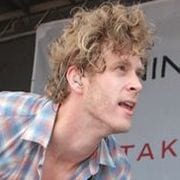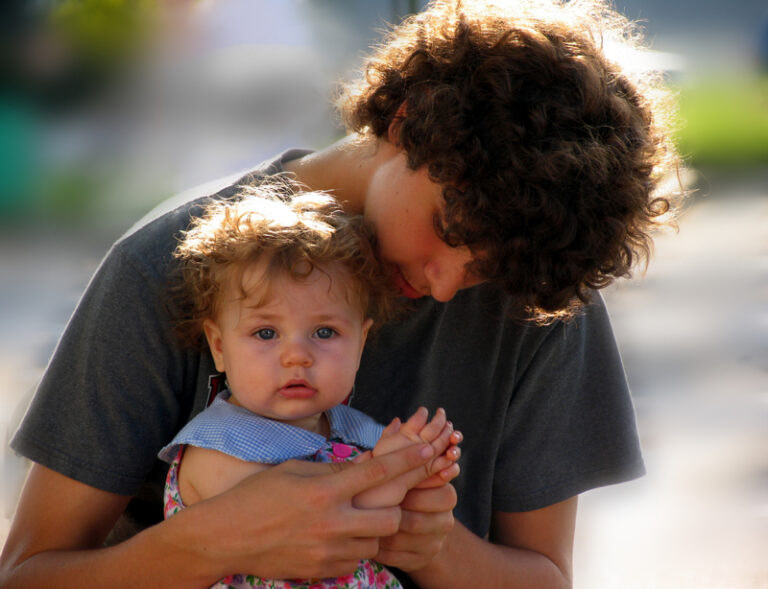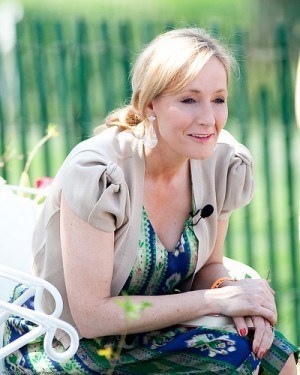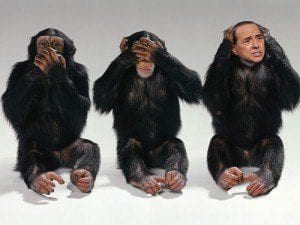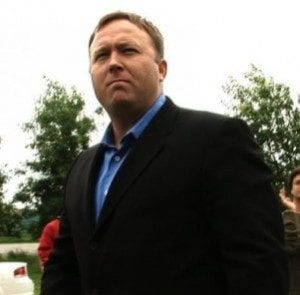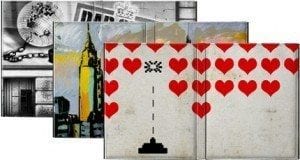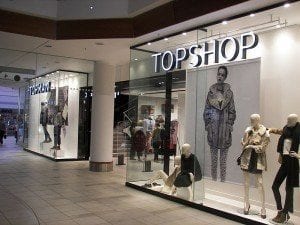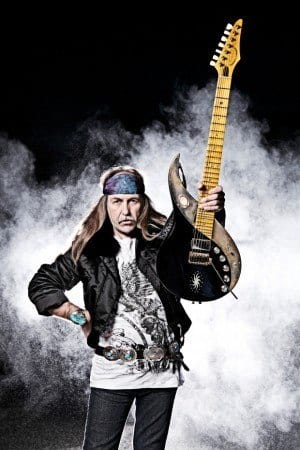
The German rocker talks to College News about his thoughts on music, technology, and metal today
How many takes did it take for you to get the leads down on “Catch Your Train” for the original recording?
That was so long ago I really don’t remember how many. The only thing I remember was the feeling. The song starts with intense feedback, and I remember we were recording in this small studio room, I was right next to the amp and it was very loud. I don’t remember it being too difficult – we were in a good flow that summer. Those leads were really pushing the envelope at that time, it was very avant-garde.
How did it compare recording it this time around for “Scorpions Revisited”?
Well it was much easier this time, I’m a much better guitar player. It wasn’t an easy song to play back then. I needed to concentrate on it then, but that’s not to say I don’t still have to concentrate when I’m playing. I always need to concentrate, but the technical aspect of it isn’t as difficult now.
What are you feelings towards the Schenkers (Rudolph and Michael)? You and Michael played a show a while back and some viewers felt there may have been a bit of a battle going on.
Michael and I get along great on stage, so I’m sure there wasn’t a battle – at least no intentionally. We’re always good together on stage. That may have been on the South American tour because it had been a while since we had played together on stage. There’s no rivalry with Mike or Rudolph, there’s a lot of mutual respect there.
What inspired you to create the Sky Guitar?
I originally came up with it for practical reasons. A standard electric guitar has 21 frets, sometimes 22, so there’s a certain limit on the treble range. You run out of notes at one point. I was always fascinated by the violin, it has a much wider range, although the guitar has a great singing range. During my time with the Scorpions I would run out of frets because my leads went higher, so I thought “I should do something about that” so I added frets. The guy who was building my guitars in the 80s said “I can build anything you want” so I came up with my dream guitar. The Sky Guitar extended the fret board and added way more octaves. I also added a seventh bass string, so some Sky Guitars have six strings, some have seven. I mainly used a six string for the Scorpions. The aesthetic angle and shape came from wanting to build something out of necessity that was also aesthetically gratifying. I wanted a guitar that was beautiful. Late it became more and more of a cutting edge tool. The Sky Guitar today is like a Formula 1 race car – you can really do anything with it.
What are your feelings towards today’s technology? Do you embrace it or do you prefer to keep it old school?
I love technology, it keeps it interesting. I have embraced technology, but maybe not everything. I like to stay in control of technology, I use computers left, right, and center. I see a lot of people having problems with technology, especially young people. I think some people get addicted to it, especially to texting, like when you’re sitting at a table and texting each other. Everything has a good and bad side, and I think a lot of developments run away from us. It’s hard to keep track and on top of technology. It has a lot of benefits, but it can alienate people from themselves. It can be hindering to discovering yourself, what your destiny is, might, or could be – that requires introspection. Media clamoring for our attention 24/7 can be hard for many people to escape or ignore, like a drug alienating people from themselves and each other.
What is your favorite piece of technology?
I have a Galaxy S Tablet, and I’m using 30 apps on it regularly. Although, I hasten to add, I’m not addicted to it. It’s more like a personal assistant.
Has technology had an influence on your music?
I wouldn’t say technology has influenced my music. I still have the same process for writing. There have been changes within myself and music that effect how I create, but technology has had little impact. The biggest impact was in the 80s when computers first appeared in the mainstream. I used to write scores by hand but then I began using programs to write music. That changed a lot, it sped up my process of formally writing music, it made orchestral scores infinitely easier to write.
Recording certain thing has changed, it’s become a bit easier. With analog it’s hit and miss, you have one shot or you have to wipe it and redo it. Now you can layout tracks with no danger of losing them. The old way of recording was way more exciting, dangerous. When that little red light was on it was a matter of life and death.
How long do you think you will continue touring? Do you have an end date in mind or will you just tour until you can’t anymore?
I think that’s a great way to put it. In the mid-80s to mid-90s I didn’t tour for about 13 years – I stopped touring completely. I just got bored with traveling. But then I had this resurgence in my appetite for touring and I got back into it. Sometimes it can be hard on your body, traveling to all these different time zones in America, Japan, Europe, all within a short time frame while playing at the same time. I’ve just developed my own time zone that I carry with me. When I get tired I just curl up in the corner like a cat and sleep. That helps. When I’m at home I try to get back into my time zone.
When did you first get involved with music? Did you always plan on it being your career or did it just sort of happen that way?
I loved music so much, it drew me in like a giant magnet. I didn’t think of it as a career, I was motivated by the love of it. At 17 I wanted to be a classical concert guitarist. Then I got involved with the Scorpions and chose electric guitar, then just started being a full time musician. There wasn’t a lot of planning ahead, it just kind of happened, it was destiny.
What is your favorite city you’ve been to?
I don’t have one favorite city where I feel a kinship and feel at home. I like cities for different reasons. When I first visited LA I thought it was strange, like Spain goes Disneyland. It was surreal, but with a very real undercurrent. Now it feels like a big holiday camp. I love visiting but I couldn’t live there. I have lots of friends there and feel very relaxed there, sometimes too relaxed. LA also doesn’t have a “face” like most cities have. New York, Singapore, Berlin – they all have a face looking at you, an unmistakable flavor. LA isn’t like that. What I see in my mind is endless suburbs, melting one into the next, with almost no high-rises, and then of course the water line. That’s what you see from the plane as well. I relate to cities and I read up on the history of places I’m interested in. I have a bond with many cities. New York is the opposite of LA. It’s very intense, I couldn’t believe the amount of psychic electricity, like a mix of light and dark at the same time. It was almost dangerous in its intensity. It seems a little less intense now than it was in the eighties, but it is still very unique. In that way it’s inspirational – its draws you in, the frequency permeates the air and you become one with that place.
What is your favorite venue that you have played?
I don’t necessarily have one favorite venue either. Each venue has its own frequency, they develop a certain vibration. Each has its own history as well. The Royal Albert Hall in London is steeped in history. In the US one of my favorite venues is the House of Blues in Chicago. It was modeled after a theatre in Prague, the last venue Mozart played at. It’s a beautiful venue with a great sound. Also, the venue where we recorded Tokyo Tapes, Nakano Sun Plaza. I just played there again last week, but unfortunately it will be demolished soon for the upcoming Olympics. Also, the Arcada Theatre in St. Charles, Illinois. It seats about 900 people and it’s an old Vaudeville style theatre that’s been refurbished, I had a great show there. The dressing rooms are downstairs and one girl who was looking after us said that it was one of Al Capone’s favorite hideouts and she pointed out a door that still had blood stains on it from a shooting there. It was blood churning. This room was right under the stage and we had no idea about the history while we were playing. It was very interesting to say the least.
Are there any venues that you would love to play but haven’t yet?
I always look forward to playing new venues, when its right and gives a great show. Maybe the Hollywood Bowl.
Do you have a favorite song to perform live?
I would say they are all my favorites, I do prefer some to others but there’s no one song that rules supreme. I treat them all with respect and I try to do each song justice to the fullness of my abilities. There are some songs I like less than others, but someone could call a song out at a show and we play it and I’ll rediscover it and love it again. We played in Osaka and someone asked for Hellcats. We rarely play that live but we were playing a lot of encores and someone called it out. We went into it and it was electrifying. Some songs can have a metamorphosis on stage. It’s most important to bring the essence of the song alive. I don’t want to sound over rehearsed, I want to feel like we just made it up on the spot. Some musicians will rehearse a song to death and it turns into a ghost of a song, rather than a spirit of a song.
Are you consistently writing or does your inspiration come in bursts?
It comes in bursts. I’m not interested in being overly prolific, I don’t want to do what I’ve done before, so every album is different. I also work on different projects, right now I’m writing a book for Sky Academy about the metaphysics of music. I’m always exploring and learning new things.
So what motivated you to do Scorpions Revisited?
I wanted to revisit my past material to reconnect with that early energy to see what would happen. It was a very interesting journey, full of surprises. I learned a lot and reconnected with things I’d forgotten about, certain aspects of playing and tuning in. It was like a reawakening process. I deliberately went beyond and used the energy to recreate a new emphasis and a new force field. I wanted to consciously bring old ideas into the present, and I saw it materialize and take on a new form and new life. I was watching as I was doing it, like an outsider. I really enjoyed it and I may revisit the Electric Sun period as well, we had a good following in America and Asia.
How do you feel about Metal today?
Honestly I’m not really a big metal fan, it’s too 2-dimensional. It lacks dynamics and lacks what I want to hear in music. I think music is at a crossroads at the moment, and I wonder what the future holds. I gravitate towards melodies and harmonies, not so much the basic aspects of music. I come from a classical background and I miss the subtle approach to music making. A lot of it is mechanized, machine-like, and rough. I’d like to see it develop back into something sensitive.


